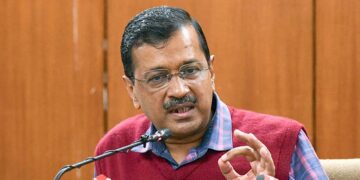Nithin Kamath, a co-founder of Zerodha, disclosed that he had a “mild stroke” six weeks prior. The following food and lifestyle recommendations are for stroke survivors. Co-founder of Zerodha Nithin Kamath said on social media on Monday that he is recovering from a “mild stroke” that occurred six weeks ago.
Doctors have recommended Kamath to’shift the gears down a bit’ since he believes that his father’s death, lack of sleep, fatigue, dehydration, and overworking are among the potential causes. Brain tissue starts to die in a matter of minutes when it is deprived of oxygen and nutrients. Repercussions from a stroke can be long-lasting, depending on the part of the brain injured and to what extent.
Early intervention is very important. Common long-term side effects of stroke include impaired speech, reduced physical abilities, weakness or paralysis of limbs on one side of the body, difficulties gripping objects, and slower communication.
Recovering from a stroke requires addressing its problems and aftereffects, which is why stroke rehabilitation is crucial. In order to maximize independence and quality of life through focused treatments, it entails intense therapy and exercises to assist stroke survivors in regaining lost abilities, such as mobility, speech, and cognition.

Table of Contents
ToggleDietary adjustments
It’s crucial to implement dietary adjustments after a stroke to promote a quick recovery. Usually, this entails consuming less salt to control blood pressure, consuming more fruits, vegetables, and whole grains to strengthen the heart, and making sure to drink enough water to aid in healing and general wellbeing.
ALSO READ:- With his passing, Ghazal vocalist Pankaj Udhas leaves behind timeless notes
Changing one's way of life
Research indicates that there is a markedly increased chance of another stroke following the initial one. In addition to a well-planned diet, lifestyle modifications including consistent exercise, giving up smoking, and managing stress with mindfulness or relaxation techniques to improve general well-being are crucial to preventing more strokes.
“It is critical to pay attention to lifestyle aspects. Frequent exercise according to each person’s ability helps to improve cardiovascular health and fosters neuroplasticity, which facilitates functional recovery and neuronal rewiring. Moreover, important lifestyle changes that can reduce the chance of another stroke and promote long-term recovery include keeping a healthy weight, controlling blood pressure and cholesterol, and quitting smoking. Meditation and yoga are beneficial as well,” says Dr. Chopra.
Control of stress
“Managing stress enhances general wellbeing. It’s critical to lower stress levels, which is why it’s critical to practice mindfulness, relaxation methods, and joyful hobbies. Similarly, reducing excess weight lowers the risk of stroke and puts less burden on the cardiovascular system; for this reason, patients may occasionally need to take proactive steps to control their weight.







































Comments 2